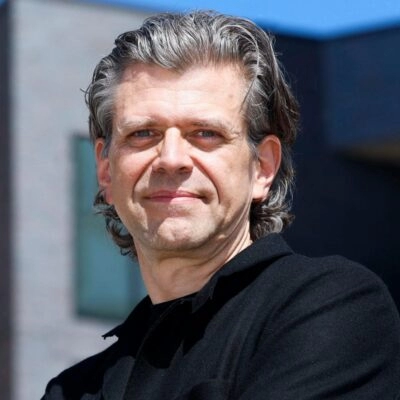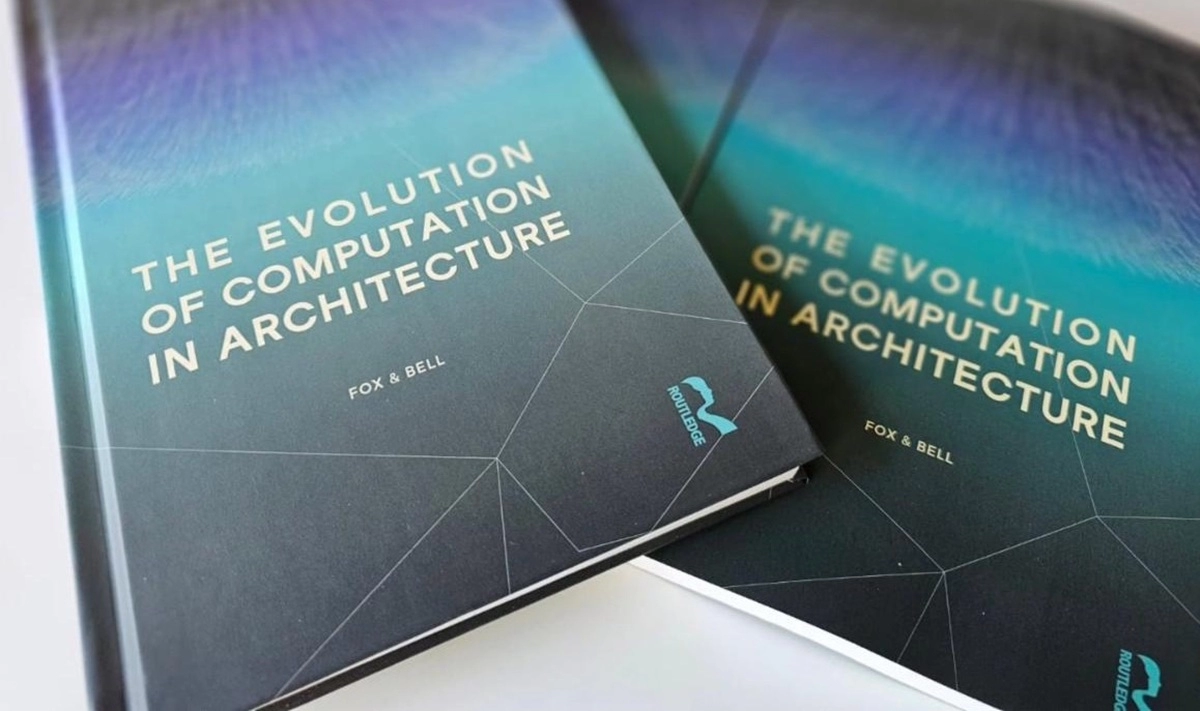The Evolution of Computation in Architecture
Panel Discussion
February 25, 2025
Tuesday, 7:00 pm
Check-in and Reception at 6:15pm
Free and Open to the Public
Angelika Film Center | Mockingbird Station
Ron Stelmarski, FAIA
Moderator
AIA CES Credit Available



Only recently has computation fostered profound new ways of designing, fabricating, constructing, and thinking about architecture. While the profession sits at the end of the beginning of this historically transformative shift, it is now possible to look back upon the rapidly maturing landscape of projects, influencers, and tools that have finally begun to catch up with the visionary thinking of the past. A newly-released book, The Evolution of Computation in Architecture, is the first comprehensive overview of the pioneering works, events, and people that contributed to the paradigm shift defined by computation in architecture. Join authors Brad Bell and Michael Fox as they discuss their book – this conversation is sure to inspire students of computation in architecture, as well as researchers and practicing architects to think about how the tools we use and the ways we design our buildings and environments with them can truly impact our lives.
About the Presenters:
Ron Stelmarski, FAIA, has been the Design Director for the Dallas studio of Perkins&Will since 2011. Witnessing the shift from analog to digital architectural processes, and trained under the legendary Frank Gehry and Zaha Hadid, Ron has cultivated a distinctive approach that integrates art, architecture, and technology to create innovative buildings that resonate with their time and elevate the human experience.
Ron’s design philosophy emphasizes expressive forms, structural clarity, and regenerative design, uncovering unique solutions to diverse building types. His work enriches how people perceive and interact with architecture and nature. As noted by Mark Lamster, architecture critic for the Dallas Morning News, “nobody has done more to shape the city’s built environment this century.” Ron’s recent projects span Houston, Shreveport, and Columbus, Ohio, with his current focus being the role of Project Design Director for the Dallas Convention Center.
Brad Bell received his Master of Science in Architecture degree from Columbia University Graduate School of Architecture Planning & Preservation and a Bachelor of Environmental Design from Texas A&M. Brad is the former Director of the School of Architecture (2016-2023) and an Associate Professor at The University of Texas at Arlington. He currently directs the Digital Architecture Research Consortium (DARC) at UT Arlington and was a founding member of TEX-FAB (2008-2017). In 2020 Brad was honored by the Texas Society of Architects with the Award for Outstanding Educational Contribution in Honor of Edward J. Romieniec FAIA.
Brad is a member of the Board of Directors of The Dallas Architecture Forum and Chairs The Forum’s Lecture Programming Committee. He has previously taught at Tulane University and the University of Colorado. His research focuses on innovative material applications and computational fabrication within the architectural design process.
Michael Fox received his Master of Science in Architecture degree with honors from MIT and his undergraduate professional degree in Architecture from the University of Oregon. He has been elected twice as the President of ACADIA (Association for Computer Aided Design in Architecture). Fox founded a research group at MIT to investigate interactive and behavioral architecture, which he directed for 3 years. He has taught at Art Center College of Design, USC, MIT, HKPU, and SCIARC and is a Full Professor at Cal Poly Pomona.
Fox’s work has been featured in numerous international periodicals and books and has been exhibited worldwide. He is the author of two previous books on architectural computation. He is a practicing registered architect and directs the office of FoxLin Architects.


